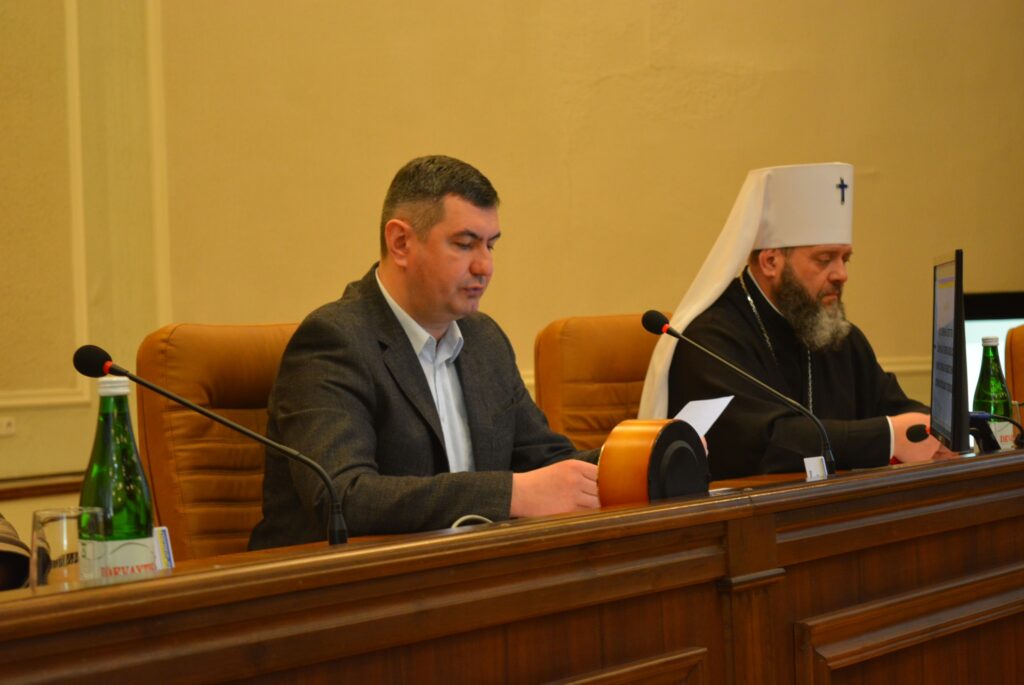The Church has its land taken away: what does the law say?

In the fight against the UOC, its opponents have applied a new tool – deprivation of the right to use land. How legal is this, and what can be done to protect one's rights?
In the spring of 2023, local authorities synchronously began to make decisions on expropriating land plots from the communities of the Ukrainian Orthodox Church. These decisions imply that the churches standing on such land cannot function anymore. How legal is this, and how should we approach it?
About a year ago, local self-government bodies also synchronously began to make decisions on "banning" the activities of the Ukrainian Orthodox Church on their territory. Here is an example of one such decision: "To prohibit the activities of the Ukrainian Orthodox Church (the Moscow Patriarchate) on the territory of the Makhnivskyi village council, as it poses a threat to the national security of Ukraine."
Despite the fact that the deputies refer to the laws of Ukraine "On the Legal Regime of Martial Law" and "On Local Self-Government", it is absolutely illegal. Anyone can read the relevant articles of the laws and see this for themselves. Even opponents of the Ukrainian Orthodox Church are forced to recognize the illegality of such decisions. Here is the most recent statement, dated April 6, 2023, by the head of the State Service for Ethnopolitics and Freedom of Conscience (DESS) Victor Yelensky: "Local authorities cannot ban churches. Motives and aspirations are clear but it is illegal."
Recently, the decisions of the local authorities to ban the UOC have become somewhat different. They already contain not a categorical prohibition but an appeal to the Verkhovna Rada to vote for such a ban. For example, here is how the decision of the Rivne City Council of April 10, 2023, is formulated: "To appeal to the Verkhovna Rada of Ukraine and state bodies (in accordance with their competence) regarding the inadmissibility of further existence and activities of the Ukrainian Orthodox Church (the Russian Orthodox Church in Ukraine) (the appeal is attached)."
Similar requests are not an abuse of power by local government bodies and can be directed to the Verkhovna Rada, which, in turn, can vote for the corresponding ban. This will certainly contradict the Constitution of Ukraine, but that is a separate topic.
Today, such requests are considered by the Verkhovna Rada together with the decision to deprive rights to land plots that are in use by communities of the Ukrainian Orthodox Church. The same was done by the Rivno City Council.
The next day, 11.04.2023, the media reported a similar decision by the Volyn Regional Council.

The praesidium of the Volyn Regional Council, 11 April 2023. Photo: "Suspilne Lutsk".
It is indicative that during the vote to ban the UOC, the "Metropolitan" of the OCU, Mykhailo Zinkevych, sits on the praesidium of the Volyn Regional Council. Is this not a violation of the principle of equality? Is this not evidence that one religious organization is cracking on another with the hands of those in power?
The “Suspіlne Novyny” news agency, reporting on this decision, quoted the head of the legal company Rechtsanwalt Ukraine Vasyl Samoliuk as saying: "Any decisions of the local authorities regarding the prohibition of any religious organization, including the UOC, are currently illegal. As for the seizure of land – here we need to consider each specific situation, on the basis of what agreements and decisions this land was transferred. If the land was registered in the name of the corresponding religious communities – it is also completely hopeless. As for the agreements on the use of specific property, we must also refer to a specific agreement. Quite a correct statement, in full compliance with the laws of Ukraine.”
Similar decisions were made in a short period of time in Khmelnytskyi, Rivne, Kamianets-Podilskyi, Lutsk, Zdolbuniv, Ternopil, Berezan and other settlements.
How lawful are these decisions? For example, the Rivne Regional Council made a decision to terminate the use of land by the Michael religious community at 8 Zhytomyrska Street.
To substantiate this decision, Rivne deputies cite the Land Code, as well as the laws of Ukraine "On Local Self-Government" and "On Freedom of Conscience and Religious Organizations". The decision states: "To terminate the right of the Ukrainian Orthodox Church (St Michael) religious community to permanent use of a land plot with an area of 737 square meters located at 8 Zhytomyrska Street with cadastral number 5610100000:01:042:0348."
The Land Code establishes both the grounds on which the use of a land plot may be terminated and the procedure for such termination. Article 141 establishes: "The grounds for the termination of the right to use a land plot are:
a) voluntary refusal of the right to use a land plot;
b) expropriation of a land plot in cases provided for by this Code;
c) termination of the activities of religious organizations, state or municipal enterprises, institutions, and organizations;
d) use of a land plot in ways that contradict environmental requirements;
e) use of a land plot for a purpose other than its intended purpose;
f) systematic non-payment of land tax or rent;
g) acquisition by another person of ownership rights to a residential building, structure, or facility located on the land plot;
h) use of a land plot in a manner that contradicts the requirements for the protection of cultural heritage;
i) transfer to a private partner or concessionaire...;
j) termination of the right to use subsoil...".
In decisions to deprive UOC communities of land plots, the reasons are generally not mentioned at all, since they are practically impossible to apply to communities. And depriving the right to use simply because the deputies of a local council wanted it is not provided for by the laws of Ukraine.
Now let's turn to the procedure for terminating the right to permanent use of land plots. Article 149 states: "Expropriation of land plots is carried out with the written consent of land users, and in case of disagreement of land users – in court."
In other words, local government bodies must go to court if they wish to take land away from the community of the UOC, as they cannot do so independently.
Article 143 of the Land Code establishes reasons for which the court may forcibly deprive the community of the right to use the land. They are as follows:
a) "use of the land plot not for its intended purpose;
b) failure to eliminate violations of legislation (pollution of land by radioactive and chemical substances, waste, sewage...);
c) confiscation of the land plot;
d) compulsory alienation of the land plot on grounds of public necessity;
e) compulsory enforcement on the land plot for obligations of the owner of this land plot;
e1) compulsory enforcement on the right of emphyteusis, superficies for obligations of the person using the land plot in such a right."
However, even if these grounds are present (which is hard to imagine in relation to the UOC communities since they do not pollute the land with radioactive waste), local authorities cannot immediately go to court.
Article 144 of the Land Code requires that in the event of the aforementioned grounds being discovered, first, a "state inspector for control over the use and protection of land or a state inspector for environmental protection" draws up a protocol on administrative offence and prescribes a 30-day period for the violation to be corrected. Then, if the prescription is not complied with, the inspector draws up another protocol and gives another 30 days to correct the violation. Only then, if the violation is still not corrected, the "state control body for the use and protection of land or the state control body for environmental protection" has the right to go to court with a claim to terminate the right to use the land plot. And it is unlikely that it will be possible to prove in court that the community is using the plot for a different purpose or polluting it in any way.
Some questions may arise regarding point "d", concerning the compulsory alienation of the land plot on the grounds of public necessity, but even here, the rule applies that if the land user does not agree, only the court can make a decision.
If the land plot is not in permanent use but under lease, the Law of Ukraine "On Land Lease" must also be followed.
Article 32 of this law establishes that a lease agreement may be terminated by mutual agreement of the parties, unilaterally, or by court decision only in the event of the lessee's (religious community's) failure to perform its obligations, which are mostly similar to those in the case of the right to permanent use of the land plot (intended use, etc.). In the case of a land lease, a lease agreement must be concluded, in which the list of such obligations of the lessee or the grounds for unilateral termination of the contract may be expanded by consent of the parties. In this case, the lease agreement should be followed. However, in the absolute majority of cases, there is no difference between the agreement and the provisions of the corresponding articles of the law.
Another tricky way to deprive the UOC community of the right to use or lease a land plot is the cancellation by the local self-government authority of its own decision to transfer the land to the UOC community for permanent use or lease.
Local authorities can overturn their own decisions to grant land to the UOC. But not in this case.
There is a clarification of the Constitutional Court of Ukraine on this matter that says: "The Constitutional Court of Ukraine notes that the Constitution of Ukraine enshrines the principle according to which human rights and freedoms and their guarantees determine the content and direction of the activity of the state that is responsible before the individual for its activity (Article 3). Local authorities are accountable for their activities to legal and natural persons (Article 74 of the Law). Thus, local authorities cannot cancel or amend their previous decisions if these decisions have given rise to legal relationships related to the realization of certain subjective rights and legally protected interests and the subjects of these legal relations object to their amendment or termination."
In addition, the decision on transferring a land plot for use to a religious community is of a one-time, non-regulatory nature, and cannot be cancelled or amended by local government bodies after they have been executed. As for such acts, the Constitutional Court is even more categorical: "Non-normative legal acts of local self-government bodies are single-use acts, which are exhausted by their implementation, therefore they cannot be repealed or changed by the local self-government body after their implementation".
In conclusion, decisions made by local government bodies to deprive UOC communities of their right to use land are illegal and not enforceable. UOC communities should lodge complaints with the courts, the police, and the Prosecutor's Office, and make appeals to the Commissioner for Human Rights of the Verkhovna Rada.
Such decisions may also constitute a criminal offence under Article 161 "Violation of equality of citizens based on race, the colour of skin, political, religious and other convictions " (maximum penalty – 8 years in prison) and Article 180 " Preclusion of religious ceremonies" (up to 2 years or a fine of up to UAH 51 thousand). It is unclear why local deputies would expose themselves to such charges by making deliberately illegal decisions.
Article 1 of the Ukrainian Constitution states, "Ukraine is a... law-based state." Despite the fact that the reality is somewhat different now, it is necessary to force our opponents to act strictly in the legal field of Ukraine. It is necessary to use all legal possibilities to defend our rights. But, most importantly, it is necessary to remember that it is possible to take away a land plot and even a temple, but it is impossible to take away a person's faith. Only the man himself can give it away (betray it, more precisely). This means that we can remain faithful to Christ and His Church under all circumstances.









